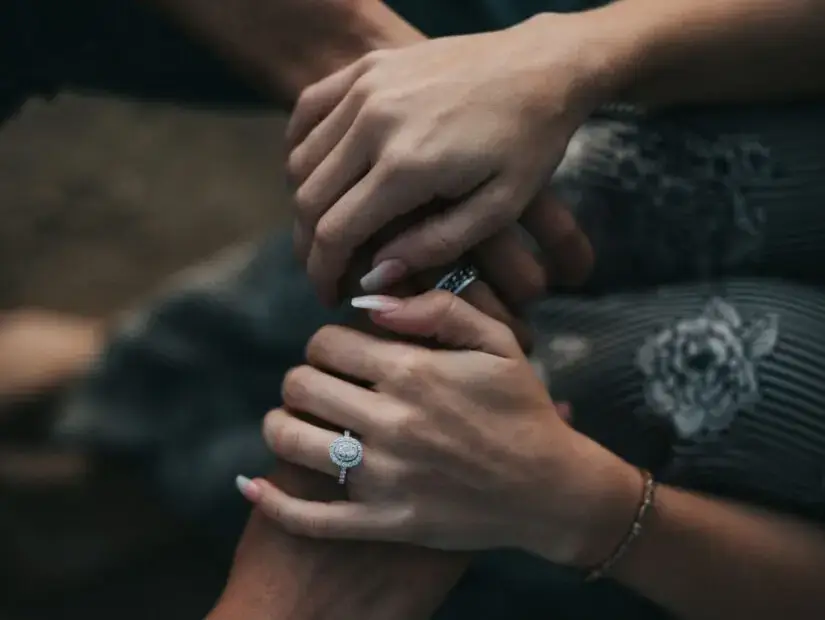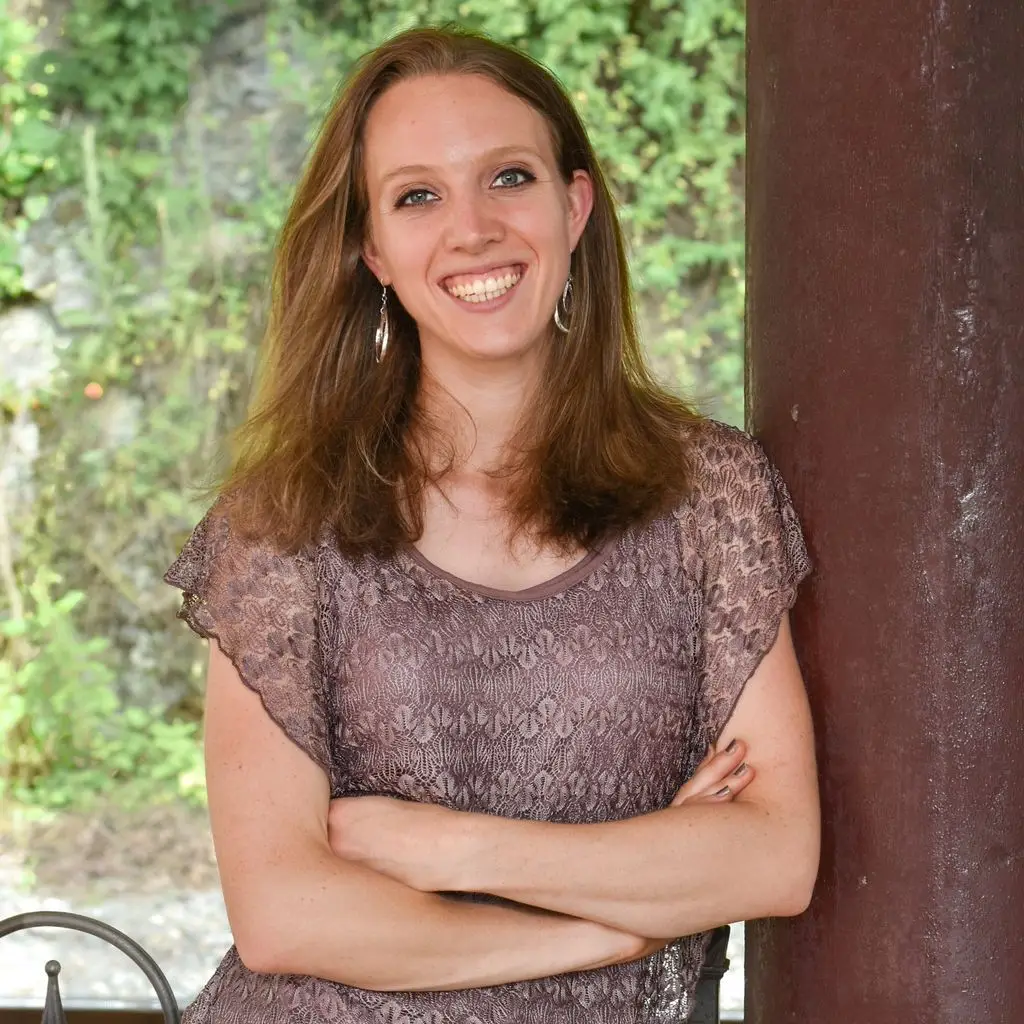Brave Enough to Heal

This post was originally published on The Road to Brave.
“That is such a great decision for them. I’m just really proud.”
…I said.
Have you said?
I think we’ve all said, at some point or another. Usually referring to something admirable in the life of a friend or family member—something like faithfully working out, attending a Bible study, journaling regularly, or starting a small group to build community. Something we can clearly laud as a great, healthy decision.
Not something we need, of course, we’re all good. But we’re very proud of them.
The future of education in your inbox.
Get productivity tips, commentary, and Unbound updates sent to you!
Our schedules just aren’t conducive to working out right now. But eventually. We’re healthy. We’re doing just fine with our Sunday morning church-ing. We don’t have any big things to process right now. We’ve got time to build community. Life’s cool.
Several years ago, I said the above about family members’ decisions to pursue counseling with a really skilled, godly counselor in our local area. Not something I needed, of course. Even though I’d been through many of the same difficulties and sorrows with family health crises and the resulting poor coping methods, relationship stressors, etc.
I’m fine, I reasoned.
Seeing a counselor means you’re broken, I reasoned further.
Well, I’m not broken. So clearly I have no need to see a counselor, I reasoned finally. And went about my merry way.
In some circumstances, refusing to hold up a mirror isn’t a problem. But in other situations, when we’re not willing to even ask, “Do I have places that need some healing?” — we WILL eventually find those places, usually by hurting ourselves or others. For me, years went by. Then one night, in the midst of a rousing “row” amongst siblings, it finally surfaced in an ugly way. Where I could have helped bring peace, I instead reacted in an uncharacteristically angry and aggressive meltdown, telling one of the people I love most words that I will always regret. It was one of the worst nights of my life.
And I realized, Ohhhh yep, I do need help. I do have some places that need work. And if I don’t deal with them, my actions will put scars on the hearts of those I care most deeply about.
Sometimes it is incredibly brave to be willing to lean in and face situations that may cause us to hurt. But other times, the most courageous thing we can do is to be willing to lean in and do the hard work of healing.
Short-Term and Long-Term
A quick definition, first, since the word “healing” has a whole diverse range of connotations, most of which aren’t applicable here. I’m not talking about miraculous physical or mental/emotional healing, although I do believe God can do, and sometimes does, that. Nor am I in any way referring to any kind of mystical or magical thing. Here, I just mean dealing with the scars and injuries of living in a broken world—the this-side-of-eternity restoration God works in our hearts and lives. Growing green things in ashen places. Correcting negative or damaging patterns. Bringing comfort to places of grief and hope to places of despair. Working through painful things so we can live in freedom, not slavery.
I think one of the reasons that we persist so long in unhealthy behaviors as humans is that it’s almost always easier in the short term to not deal with things. It’s easier to deny there’s an issue. It’s simpler to not take the time to reflect, when we’re already so busy anyway. It makes us feel better about ourselves when everything is someone else’s issue. We like not having a conscious “problem” brought to our attention. And none of us like angry or sad or hurt emotions. It’s a lot easier to dodge away or distract ourselves as soon as we start feeling them (and honestly, isn’t that what so many of us do?).
But refusing to deal with hurt or negative patterns always does more long-term damage, both to us and those in our lives. We’ve all heard the metaphors—leaving an infected wound without treatment, letting a disintegrating beam go on disintegrating without repair. But when it comes to dealing with ourselves, it’s so much easier to just let things slide.
We’re fine, right?
But if there’s something God has put on our hearts that needs work, and we’re not fine, then we’re not being brave. At all. By refusing to reckon with hard emotions or difficult patterns, we’re proving that we’re too timid to stand up and deal with something hard. Ultimately, whether we’d like to admit it or not, we’re living in cowardice—not courage.
And I say this not as someone who’s mastered this, but instead as someone who has to fight the tendency toward letting things slide.
Questions
So once we’ve decided to no longer shelve the deal-with-it healing process, what then?
Some individuals I deeply respect have talked long and hard about the issues of mental, physical, emotional, and spiritual resilience. One part of that is the process of asking yourself some good, albeit often tough, questions. Starting with, “What do you need to ask yourself next?” and, “Are you willing to be honest with your answers?”
Sometimes what’s next is a lot of journaling or talking. Sometimes what’s next is grieving through something you never took the time to grieve. Sometimes what’s next is reaching out to a godly, wise counselor and letting them ask you the questions that need to be asked and give you the tools you need to move forward.
Reflection is really important in basically any stage and situation of life…and here is no exception. Honest questions (with honest answers) give us the kind of clarity we need to start moving forward. It’s hard to make any forward progress at all if you’re stuck in the fog, going in circles. Good questions also help us reckon with the hurt so that we can heal. This week, are there any questions we know we need to ask ourselves?
Redemption
You know that golden feeling of triumph that comes with the fulfilling end of a story? The that-was-so-great-I-have-goosebumps conclusion to an excellent movie?
We live through hard and broken chapters of our ownstories in this hard and broken world. But because of the God we serve, they’re not the end of the story. And one of the most incredible things our Author does is to use His redemption in the hard chapters of one person’s story to help someone else get through and heal from the hard chapters in their story. Talk about triumph.
That doesn’t mean we’d ask for the pain we endure or the hardships we face. Usually we’d do without if we had the choice. But our God is mighty to save—and praise the Lord for that. He takes those things and redeems them to work for good, in us and in others.
When we persist in damaging or hurtful patterns and refuse to work toward healing, those places can’t bless others. It is hard to love people well when we’re hindered by our own issues and injuries. But when we’re willing to let God work in those places, to bring healing and restoration, they can in turn bless others. By wrestling through the healing process in those areas, we learn anew of the grace and redemption and power of God. And when we yield those hard places to Him, He is able to do far more abundantly than all that we ask or think.
That doesn’t always happen in our timeline. If I could, I’d be a “grow on a deadline” and “heal on a deadline” sort of person. I do steps A, B, and C and voila, that issue is no longer an issue. Cross it off the list and keep on truckin’.
But that’s not what it’s like reading a story, and it’s not what it’s like living ours, either. It’s brave to realize that we aren’t in full control of the timeline of healing. What we are in control of is how we respond and the work we put in.
Looking Forward
I would like to say that counseling was fun and I had a grand time as I reckoned (and still reckon) with the areas in my life that needed healing. I appreciated it, but it wasn’t fun. It wasn’t fun reckoning with the lies I’ve believed about myself and about others. It wasn’t fun reckoning with the patterns I’d spent years subtly reinforcing. But as someone who for years was anti-counseling (and still knowing that the wrong kind of counselor can do more damage than good), I’m also incredibly grateful for the chance to reckon with those things with someone who loved God and knew how to help others live in His truth. To learn healthy patterns and healthy coping and how to live out my values in healthy ways.
It hurts to heal. It takes courage to heal.
But love is worth that.
Isn’t it?
This week, even though it is hard, may we be brave enough to heal.

Victoria Schurter is the VP of Content and Development for Unbound. An Unbound graduate, Victoria has served in a variety of roles including student leadership, coaching, and in the Business and Leadership program. She is passionate about equipping young adults to recognize their potential, to know God, and make Him known in daily life.
When she’s not working on an Unbound project, you can find her scribbling on a novel, playing a favorite instrument, riding horses, watching a sunset, or dreaming up some new adventure that absolutely includes the Pacific coastline. One of the best parts of her world is walking alongside her fellow Unbound students as they make an eternal impact in their generation.


